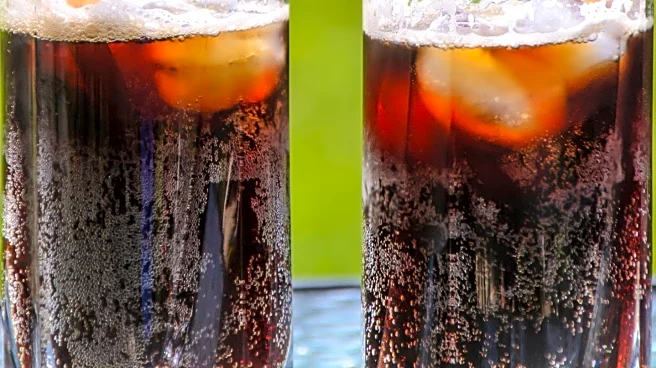What is the story about?
What's Happening?
A study conducted in Germany has found a link between the consumption of soft drinks and an increased risk of depression, particularly in women. The research involved 405 individuals with major depressive disorder and 527 without, analyzing their soda intake and gut bacteria through stool samples. The study identified a higher abundance of Eggerthella, a gut bacterium associated with depression, in women who consumed soft drinks. The findings suggest that sugar in soft drinks disrupts the gut microbiome, decreasing beneficial bacteria and increasing species linked to inflammation. The study highlights the role of diet in depression and the gut microbiome as a key mediator.
Why It's Important?
This study underscores the potential impact of dietary choices on mental health, particularly the consumption of sugary soft drinks. The link between gut microbiome changes and depressive symptoms suggests that dietary interventions could play a role in managing depression. The findings are significant for public health, as they highlight the need for tailored prevention and intervention strategies, especially for women. The research adds to the growing body of evidence on the importance of gut health in overall well-being and mental health, potentially influencing dietary guidelines and consumer choices.
What's Next?
Further experimental studies in humans and rodents are necessary to establish a causal link between soft drink consumption, gut microbiota changes, and depressive symptoms. Researchers may explore the development of dietary guidelines or interventions aimed at reducing soft drink intake to improve mental health outcomes. Public health campaigns could focus on educating consumers about the potential risks associated with sugary beverages and promoting healthier alternatives.















